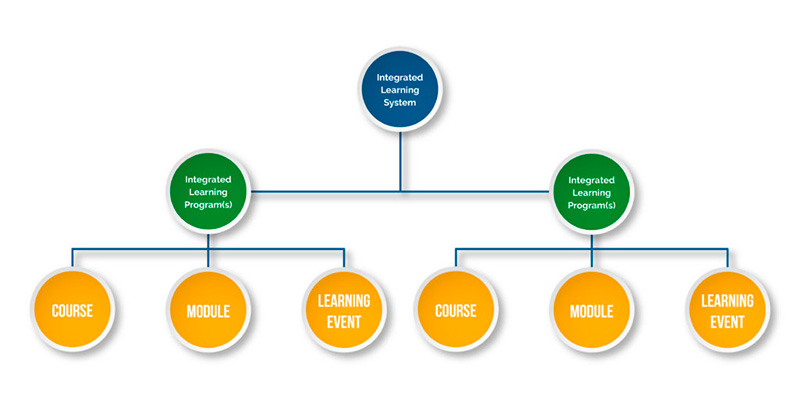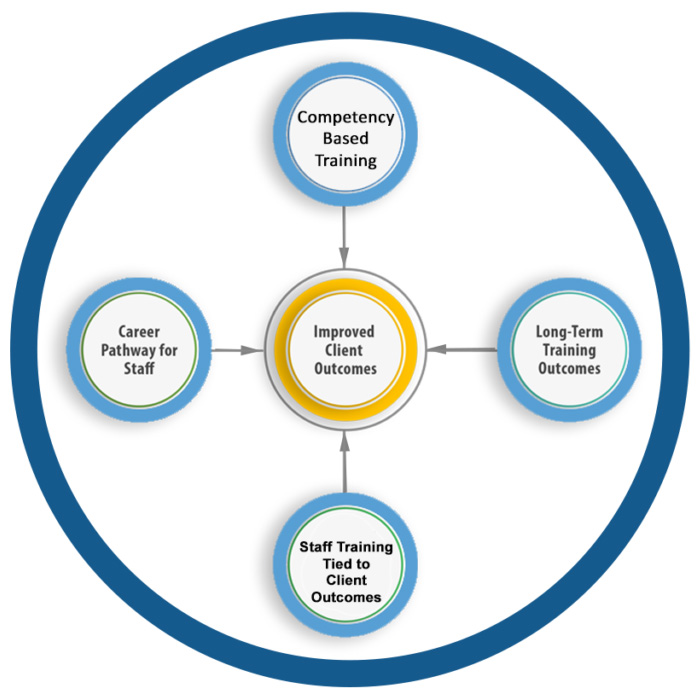Integrated Learning Programs
The Financial Health Institute is recommending the adoption of “Integrated Learning” as the training paradigm for human services and economic development.
Integrated Learning is accomplished by supporting learners over an extended period of time with multiple touch points and learning styles to provide the most impactful and effective learning opportunity. FHI utilizes live trainings blended with technology, online classes, videos, and coaching to enhance the participant’s experience so they can better retain and implement what they have learned in their job and personal life.
Integrated Learning Systems
An Integrated Learning System is developed by working across multiple agencies or programs to develop training that is researched, aligned with missions, intentional, efficient, effective and measurable. The system might include a wide range of training programs that are all built as Integrated Learning Programs.
Integrated Learning Programs
An Integrated Learning Program is a more narrowly targeted program to be implemented within a system. A program is typically made up of several courses, modules and events.
- A course references a single unit of training. For instance, Cornerstone: Foundation in Financial Health is an 8-hour course
- A module is either a micro learning or a piece of a course that can be broken out on its own.
- An event would be a live forum, webinars, or broadcasts

Training System Design and Consulting
FHI develops, implements and manages large scale training projects that span across regions, states, multiple agencies and/or departments. This includes: Research, Design, Implementation, Integration, Analysis, Replication
Comprehensive Course and Program Design
- FHI develops, implements and manages entire training programs or individual courses for organizations (includes Organizational and Professional Development programs)

Course and Program Delivery
- FHI develops, implements and delivers training programs specifically developed for clients and customers of human services and economic development
- FHI can offer multiple levels of tracking participants’ usage, completion or achievement
- To support organizations’ programmatic goals, FHI is capable of collecting, analyzing and reporting data on participants’ learning
- FHI can accommodate the level of data collection interest of the participating organization
- FHI has the ability to collect data on long-term programs or processes
Data Capable
- FHI can offer multiple levels of tracking participants usage, completion or achievement
- To support organizations’ programmatic goals, FHI is capable of collecting, analyzing and reporting data on participants’ learning
- FHI can accommodate the level of data collection interest of the participating organization
- FHI has the ability to collect data on long-term programs or processes

